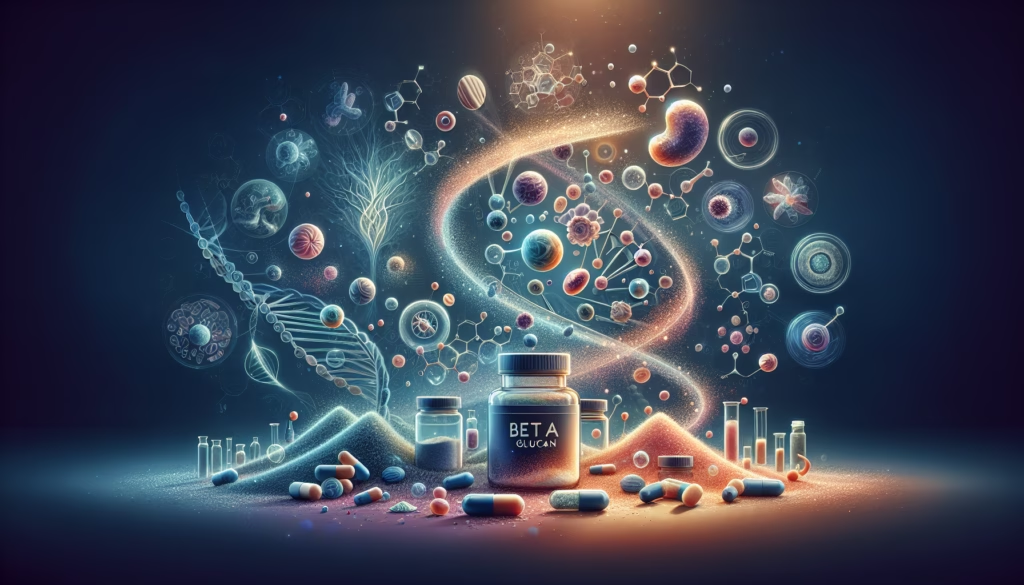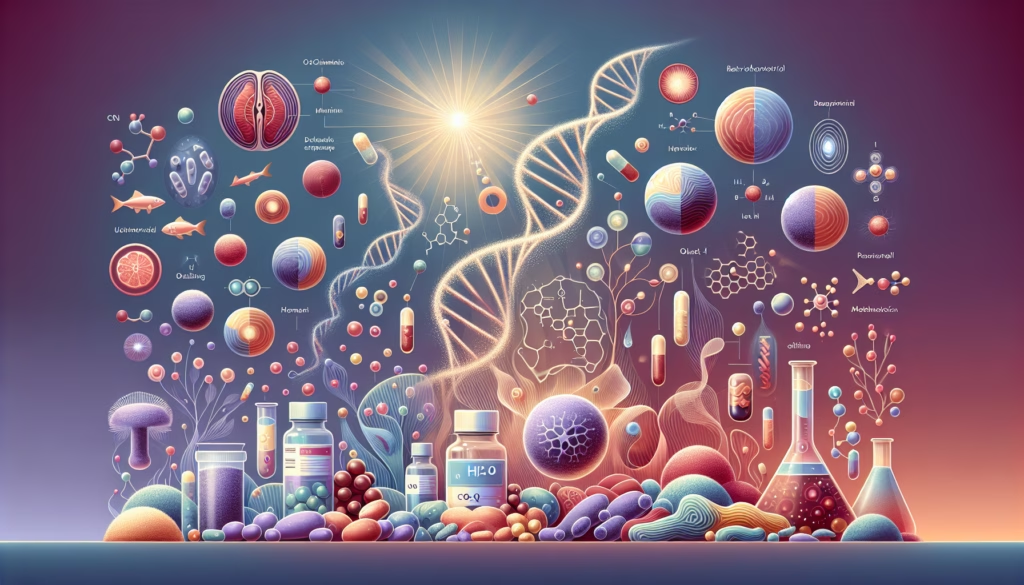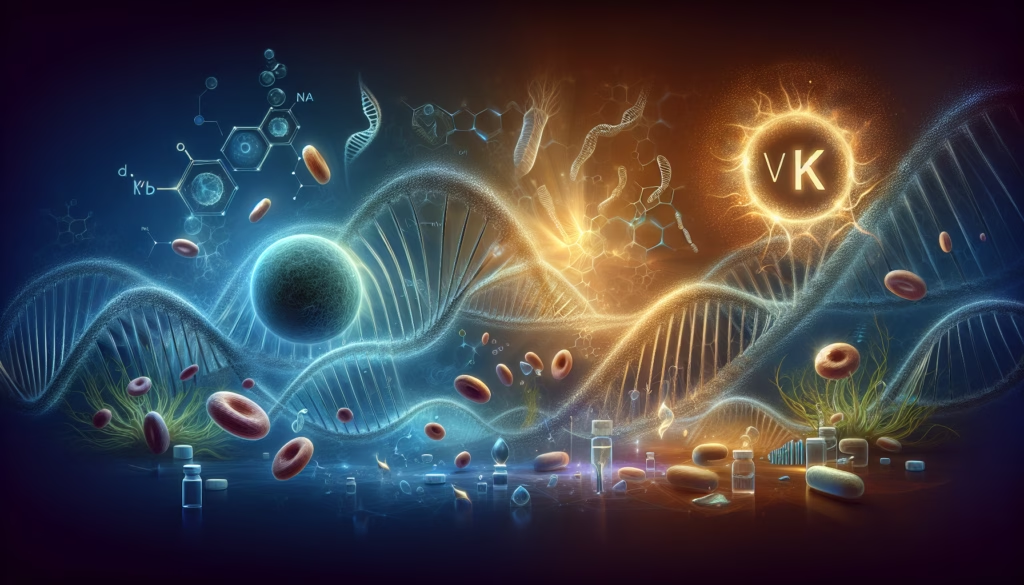
Beta Glucan
Discover the science-backed potential of beta glucan as an adjunct in cancer therapy. This post delves into the latest research
Click 
Bromelain, a proteolytic enzyme extracted from pineapple stems and immature fruits, has garnered attention for its potential anti-cancer properties. This enzyme complex, primarily composed of cysteine proteases, exhibits a range of therapeutic effects, including anti-inflammatory, immunomodulatory, and anticarcinogenic activities.
Inhibition of Cancer Cell Proliferation: Bromelain has been shown to inhibit the proliferation of cancer cells by inducing apoptosis, autophagy, and cellular oxidation. These mechanisms are crucial in limiting tumour growth and metastasis15.
Apoptosis Induction: Studies have demonstrated that it promotes apoptosis in breast cancer cells through the activation of caspases and the up-regulation of kinases such as c-Jun N-terminal kinase and p3859.
Immunomodulation: It enhances immune function by stimulating both innate and adaptive immune responses, which can aid in the body’s fight against cancer210.
Synergistic Effects with Chemotherapy: Bromelain can potentiate the effects of chemotherapeutic agents like cisplatin, enhancing their anti-tumour efficacy while potentially reducing side effects13.
Breast Cancer: In vitro and in vivo studies have highlighted bromelain’s efficacy in inhibiting breast cancer cell growth and inducing apoptosis15.
Other Cancers: Bromelain has shown promise in inhibiting the growth of various other cancers, including colorectal and lung tumours82.
Bromelain is generally considered safe for oral consumption, with recommended doses ranging from 400 to 4000 mg per day2. However, it may cause allergic reactions in some individuals7.
While bromelain demonstrates promising anti-cancer properties, further clinical trials are necessary to solidify its role in cancer treatment. Its potential to enhance chemotherapy efficacy and reduce side effects makes it an interesting adjunctive therapy in oncology.
The recommended safe and therapeutic dosages of bromelain vary based on the intended use and individual health conditions. Here are some general guidelines:
General Use: The most commonly prescribed dosage ranges from 80 to 320 mg, taken two to three times daily, which equates to approximately 240 to 960 mg per day5class=”whitespace-nowrap”>7.
Digestion: 500 mg taken three times daily with meals5.
Inflammation: 800 to 1500 mg per day on an empty stomach1.
Arthritis: 400 mg taken one to two times daily5.
Allergies: 1000 mg per day, often combined with quercetin15.
Surgery Recovery: 1000 to 3000 mg divided across the day on an empty stomach1.
Cancer Prevention: Some sources suggest up to 2000 mg daily, ideally combined with other proteolytic enzymes5.
Bromelain is generally considered safe in oral doses ranging from 400 to 4000 mg per day4. However, it may interact with certain medications, such as anticoagulants, and should be avoided before surgery due to its potential to increase bleeding risk26. Mild side effects can include gastrointestinal disturbances and allergic reactions6.
It is advisable to consult with a healthcare provider to determine the appropriate dosage and ensure safe use.
Breast Cancer, Colorectal Cancer, Ovarian Cancer
Bromelain, while generally considered safe, can cause several side effects, especially when taken in high doses or by individuals with specific sensitivities. Here are some of the common side effects and precautions:
<strong>Gastrointestinal Issues: Stomach upset, nausea, vomiting, and diarrhoea are common side effects, particularly with oral supplements378.
Menstrual Problems: Some women may experience excessive menstrual bleeding57.
Allergic Reactions: Individuals allergic to pineapple, latex, wheat, celery, papain, carrot, fennel, or cypress pollen may react to bromelain135.
Cardiovascular Effects: Increased heart rate has been reported in some cases7.
Bleeding Risk: Bromelain may increase the risk of bleeding when taken with anticoagulants like warfarin, aspirin, or NSAIDs135.
Antibiotic Interactions: It can affect the absorption of antibiotics such as amoxicillin and tetracycline15.
Sedatives: Bromelain may enhance the effects of sedatives1.
Bromelain has been tested in combination with various therapies, particularly chemotherapeutic agents, to enhance its anti-cancer effects.
Here are some examples:
Cisplatin</strong>: Studies have shown that bromelain can potentiate the anti-tumour effects of cisplatin in models of triple-negative breast cancer (4T1 cells) and other cancer types. The combination of bromelain and cisplatin resulted in enhanced tumour reduction and reduced metastasis compared to either treatment alone147.
5-Fluorouracil (5-FU): Bromelain combined with 5-FU has demonstrated synergistic effects in inhibiting cell viability in certain cancer cell lines, such as colorectal cancer cells36.
Irinotecan and Oxaliplatin: These combinations have also shown synergistic cytotoxic effects on colorectal cancer cells, indicating potential benefits in multi-modal therapy3.
N-Acetylcysteine (NAC): The combination of bromelain and NAC has been explored for its potential to sensitise gastrointestinal cancer cells to chemotherapy, enhancing the efficacy of treatments like cisplatin and 5-FU6.
These studies suggest that bromelain can be a valuable adjunct in cancer therapy by enhancing the effects of conventional treatments while potentially reducing their side effects. However, more clinical trials are needed to fully establish its role in combination therapies.
– US National Library of Medicine research on Bromelain
– Europe PMC research on Bromelain
– Pubmed research on Bromelain
References:
The survey of antitumor effects of bromelain on neoplastic breast cells: A systematic review. – DOWNLOAD
Bromelain – A Guide to Integrative Oncology for Patients. University of Washington.
Bromelain Enhances the Anti-tumor Effects of Cisplatin on 4T1 Triple-Negative Breast Cancer Cells.
Anticancer properties of bromelain: State-of-the-art and recent trends.
Bromelain-induced apoptosis in GI-101A breast cancer cells.
Cytotoxic properties of unfractionated and fractionated bromelain.
Bromelain | Memorial Sloan Kettering Cancer Center.
Bromelain inhibits the ability of colorectal cancer cells to proliferate.
Bromelain-Induced Apoptosis in GI-101A Breast Cancer Cells.
Bromelain’s activity and potential as an anti-cancer agent.
Bromelain can have a positive impact on quality of life, particularly in patients undergoing cancer treatment or experiencing postoperative recovery.
Here are some aspects where bromelain may enhance quality of life:
Pain and Swelling Reduction: Bromelain is known for its anti-inflammatory properties, which can reduce pain and swelling. This is particularly beneficial for patients recovering from surgeries, such as mandibular third molar extraction, where it has been shown to improve postoperative outcomes comparable to diclofenac sodium36.
Digestive Health: By aiding protein digestion and reducing inflammation in the gastrointestinal tract, it can alleviate symptoms of digestive disorders like inflammatory bowel disease and gastritis, thereby improving overall comfort and well-being5.
Immune System Support: Its immunomodulatory effects can help boost the immune system, which is crucial for cancer patients undergoing chemotherapy or experiencing immune suppression45.
Cancer Treatment Symptoms: Bromelain may help mitigate some side effects of cancer treatment, such as lymphedema, and improve the quality of life for patients by reducing inflammation and enhancing immune responses5.
Osteoarthritis Relief: For individuals with osteoarthritis, it can reduce joint pain and stiffness, enhancing mobility and overall quality of life23.
While bromelain offers several benefits that can improve quality of life, it is essential to consult with a healthcare provider before starting any new supplements, especially if you are undergoing medical treatment or have specific health conditions. This ensures that it is used safely and effectively as part of a comprehensive health plan.
We’ve done our best to include as much information as possible for this supplement.
If you have any other questions, please send us a message or join our Skool Group and ask our knowledgeable and friendly community.
Bromelain is widely available as a dietary supplement in many countries. Procurement can occur through pharmacies, health food stores, and online retailers; however, regulatory status and accessibility can vary by region. Consult local health authorities for specific information.
While bromelain has shown potential in various cancer types, specific patient demographics where it works best are not well-defined due to limited clinical data. However, based on existing studies, here are some insights:
Triple-Negative Breast Cancer (TNBC): Bromelain has been shown to enhance the effects of cisplatin in TNBC models, reducing tumour size and metastasis2. This indicates potential benefits for patients with aggressive breast cancer types.
Mesothelioma: Research suggests that bromelain can improve the effectiveness of cisplatin chemotherapy in peritoneal mesothelioma, a rare and aggressive cancer4. This could be beneficial for patients with mesothelioma who are seeking alternative or adjunctive treatments.
Bromelain’s anti-inflammatory and immunomodulatory effects make it potentially beneficial for patients with cancers that involve significant inflammation or immune system dysregulation. However, more clinical trials are needed to determine its efficacy across different patient demographics and cancer types.
In summary, while bromelain shows promise in various cancers, its effectiveness is not yet well-defined for specific patient demographics. Further research is necessary to establish its role in cancer therapy across different populations.
While specific resistance mechanisms to bromelain have not been extensively documented, several factors could potentially affect its efficacy:
Enzyme Degradation: Bromelain’s proteolytic activity could be compromised by protease inhibitors or other enzymes that degrade it, reducing its effectiveness.
Cellular Adaptation: Cancer cells may develop resistance to bromelain-induced apoptosis or autophagy through adaptive mechanisms, such as alterations in signaling pathways like NF-κB or MAPK, which are targeted by bromelain24.
Immune Evasion: Tumors can evade immune surveillance by modulating immune checkpoints or producing immunosuppressive factors. While bromelain has immunomodulatory effects, tumors might adapt to evade these effects34.
Epigenetic Changes: Epigenetic modifications in cancer cells could influence the expression of genes involved in bromelain’s mechanisms of action, potentially reducing its efficacy.
Drug Efflux Pumps: Overexpression of drug efflux pumps like P-glycoprotein could reduce the intracellular concentration of bromelain, limiting its anticancer effects.
Combining bromelain with other anticancer agents, such as chemotherapeutic drugs, may help overcome resistance by targeting multiple pathways simultaneously15. Additionally, understanding the molecular mechanisms underlying resistance to bromelain could guide the development of strategies to enhance its efficacy in cancer treatment.
Preclinical studies on bromelain have explored its anti-cancer properties across various cancer types, including breast, colorectal, and appendiceal cancers. These studies have demonstrated it’s potential to inhibit cancer cell proliferation, induce apoptosis and autophagy, and modulate the tumour microenvironment.
Here are some key details from these studies:
Breast Cancer:
In Vitro and In Vivo Models: Studies have shown that bromelain prevents cancer cell proliferation, induces cytotoxicity, apoptosis, and autophagy in breast cancer cells. It also exhibits synergistic effects when combined with chemotherapeutic agents like cisplatin, enhancing treatment outcomes by reducing tumour size and metastasis13.
Mechanisms: It modulates inflammatory pathways, downregulating genes involved in inflammation such as NF-κB, IL-1β, and IL-4, which are associated with tumour progression13.
Colorectal Cancer (CRC):
Cell Line Studies: Bromelain inhibits CRC cell proliferation and induces oxidative stress, leading to autophagy and cell death. Fractionated bromelain, particularly F3 bromelain, shows high proteolytic and anticancer activities, with enhanced efficacy when combined with chemotherapeutic agents4.
Synergistic Effects: Combining it with chemotherapy agents can improve treatment efficacy by targeting multiple pathways involved in cancer cell survival and proliferation4.
Appendiceal Cancer:
Organoid Studies: Bromelain demonstrates cytotoxicity and mucolytic activity against appendiceal cancer organoids. It potentiates the cytotoxic effects of hyperthermic intraperitoneal chemotherapy (HIPEC) regimens, enhancing programmed cell death pathways2.
General Mechanisms:
Apoptosis and Autophagy: It induces apoptosis through caspase activation and autophagy by modulating autophagy-related proteins, contributing to its anticancer effects24.
Immunomodulation: It enhances immune responses by increasing the cytotoxicity of immune cells against cancer cells, which can improve treatment outcomes15.
While these preclinical studies suggest promising anticancer effects of bromelain, further clinical trials are necessary to validate its efficacy and safety in humans. Understanding the molecular mechanisms underlying it’s actions will be crucial for developing effective therapeutic strategies.
Information on active clinical trials involving Bromelain for cancer treatment is limited. Active clinical trials can be accessed through clinicaltrials.gov for the most up-to-date information.
Currently, there is limited information on specific genetic markers that directly affect the efficacy of bromelain in cancer treatment. However, it’s mechanisms of action involve several pathways and genes that could potentially influence its effectiveness.
NF-κB Pathway: Bromelain inhibits the NF-κB pathway, which is involved in inflammation and cancer progression. Variations in genes related to this pathway might influence bromelain’s efficacy27.
TGF-β Regulation: It can modulate TGF-β activity, which is crucial in tumour growth and metastasis. Genetic variations affecting TGF-β signalling could impact bromelain’s effectiveness6.
Apoptosis Pathways: It induces apoptosis through mechanisms involving caspases and Bcl-2 family proteins. Genetic alterations in these pathways might affect how well bromelain induces apoptosis in cancer cells38.
Angiogenesis: It inhibits angiogenic factors like VEGF and COX-2. Genetic variations in these pathways could influence bromelain’s anti-angiogenic effects27.
Identifying specific genetic markers that predict bromelain’s efficacy would require further research, including genetic profiling of patients treated with bromelain. This could help tailor bromelain therapy to individuals based on their genetic background, potentially enhancing its effectiveness in cancer treatment.

Discover the science-backed potential of beta glucan as an adjunct in cancer therapy. This post delves into the latest research

Explore the emerging world of hydrogen gas (H₂), also known as Brown Gas, and its remarkable potential as an adjunct

Explore the latest scientific insights into vitamin K2 and its promising role in cancer therapy. In this comprehensive blog post,
Apoptosis, or programmed cell death, is a natural process where cells self-destruct when they are damaged or no longer needed. This is crucial for maintaining healthy tissues and preventing diseases like cancer.
Drugs and supplements that induce apoptosis help eliminate cancerous cells by triggering this self-destruct mechanism, ensuring that harmful cells are removed without damaging surrounding healthy tissue.
Understanding and harnessing apoptosis is vital in the fight against cancer, as it targets the root cause of the disease at the cellular level.
Cell proliferation is the process by which cells grow and divide to produce more cells. While this is essential for growth and healing, uncontrolled cell proliferation can lead to cancer.
Drugs and supplements that inhibit cell proliferation help prevent the rapid multiplication of cancerous cells, slowing down or stopping the progression of the disease.
By targeting the mechanisms that drive cell division, these treatments play a vital role in controlling and potentially eradicating cancer.
Cancer cells often hijack specific biological pathways to grow and spread. Drugs and supplements that target these pathways can disrupt the cancer cell’s ability to survive and multiply.
By focusing on the unique mechanisms that cancer cells use, these treatments can be more effective and cause fewer side effects compared to traditional therapies.
Targeting specific pathways is a key strategy in precision medicine, offering a tailored approach to combat cancer at its core.
Angiogenesis is the process by which new blood vessels form, supplying nutrients and oxygen to tissues. Cancer cells exploit this process to fuel their growth and spread.
Drugs and supplements that inhibit angiogenesis can effectively starve cancer cells by blocking the formation of these new blood vessels.
By cutting off the supply lines that tumors rely on, angiogenesis inhibitors play a crucial role in controlling and potentially shrinking cancerous growths.
Immunotherapy harnesses the power of the body’s immune system to combat cancer. By boosting or restoring the immune system’s natural ability to detect and destroy cancer cells, immunotherapy offers a targeted and effective approach to treatment.
Drugs and supplements that support immunotherapy can enhance the immune response, making it more efficient at identifying and attacking cancer cells.
This innovative approach not only helps in treating cancer but also reduces the risk of recurrence, providing a powerful tool in the fight against this disease.
Inflammation is the body’s natural response to injury or infection, but chronic inflammation can contribute to the development and progression of cancer.
Drugs and supplements with anti-inflammatory properties help reduce inflammation, thereby lowering the risk of cancer and other chronic diseases.
By targeting the inflammatory processes, these treatments can help maintain a healthier cellular environment and prevent the conditions that allow cancer to thrive.